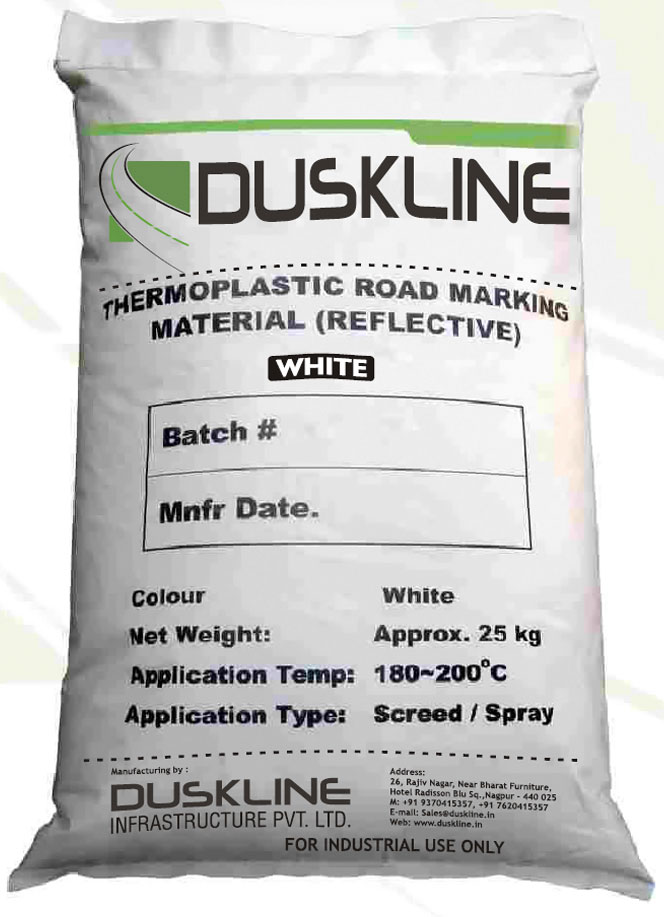Thermowhite road marking paint, also called hot melt marking paint, is a powder base paint. When applied as road surface markings, need to heat upto 200 °C (392 °F), after which it is sprayed on the road surface. The coating then becomes a line after cooling. This paint is thick coating, wear-resisting, bright and reflective. In order to increase the antiskid performance of the line, thermowhite paint has added reflective glass beads.
This Thermowhite road marking material is the result of years of research and hard work done by Duskline laboratory. The product is made up of selective use of plasticisized binders, reflective glass beads, extenders and pigments.

